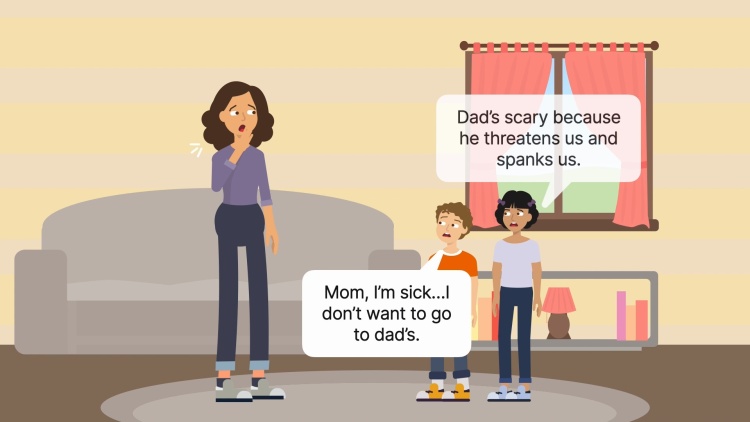Roberts v. Roberts
Virginia Court of Appeals
586 S.E.2d 290 (2003)
- Written by Rose VanHofwegen, JD
Facts
When Sonja (plaintiff) and Jeffrey Roberts (defendant) divorced, they agreed Sonja would have primary physical custody of their two children. Three years later, Sonja petitioned to suspend or modify Jeffrey’s visitation. The children disliked visiting their father because he made them read the Bible, do chores, and used corporal punishment. Jeffrey told the children Sonja was a fornicator and adulterer condemned to hell. He also said the children would go to hell when they disobeyed him. The children feigned illness to avoid visiting their father, and their schoolwork suffered before and afterward. A teacher testified that one child’s personality changed when he visited Jeffrey, and the child showed visible discomfort when Jeffrey visited his classroom. A clinical psychologist found Jeffrey’s condemning Sonja, telling his daughter that women should not aim to achieve men’s goals and be subservient, and meting out corporal punishment distressed the children and risked psychological harm. Jeffrey agreed to parenting counseling but failed to do so. The court found Jeffrey’s condemning the person he agreed would be primary caretaker unconscionable and that if Jeffrey’s religious beliefs required him to say those things, the court’s duty to protect the children’s best interests outweighed it. Therefore, the court terminated Jeffrey’s in-person visitation and limited contact to weekly 30-minute phone calls, which Sonja could monitor and terminate if Jeffrey repeated harmful conduct. Jeffrey appealed, arguing that the court infringed his constitutional free-exercise-of-religion rights and his right to contribute to his children’s religious education and failed to presume that parents always act in their children’s best interest.
Rule of Law
Issue
Holding and Reasoning (Willis, J.)
Concurrence/Dissent (Felton, J.)
What to do next…
Here's why 904,000 law students have relied on our case briefs:
- Written by law professors and practitioners, not other law students. 47,100 briefs, keyed to 995 casebooks. Top-notch customer support.
- The right amount of information, includes the facts, issues, rule of law, holding and reasoning, and any concurrences and dissents.
- Access in your classes, works on your mobile and tablet. Massive library of related video lessons and high quality multiple-choice questions.
- Easy to use, uniform format for every case brief. Written in plain English, not in legalese. Our briefs summarize and simplify; they don’t just repeat the court’s language.





